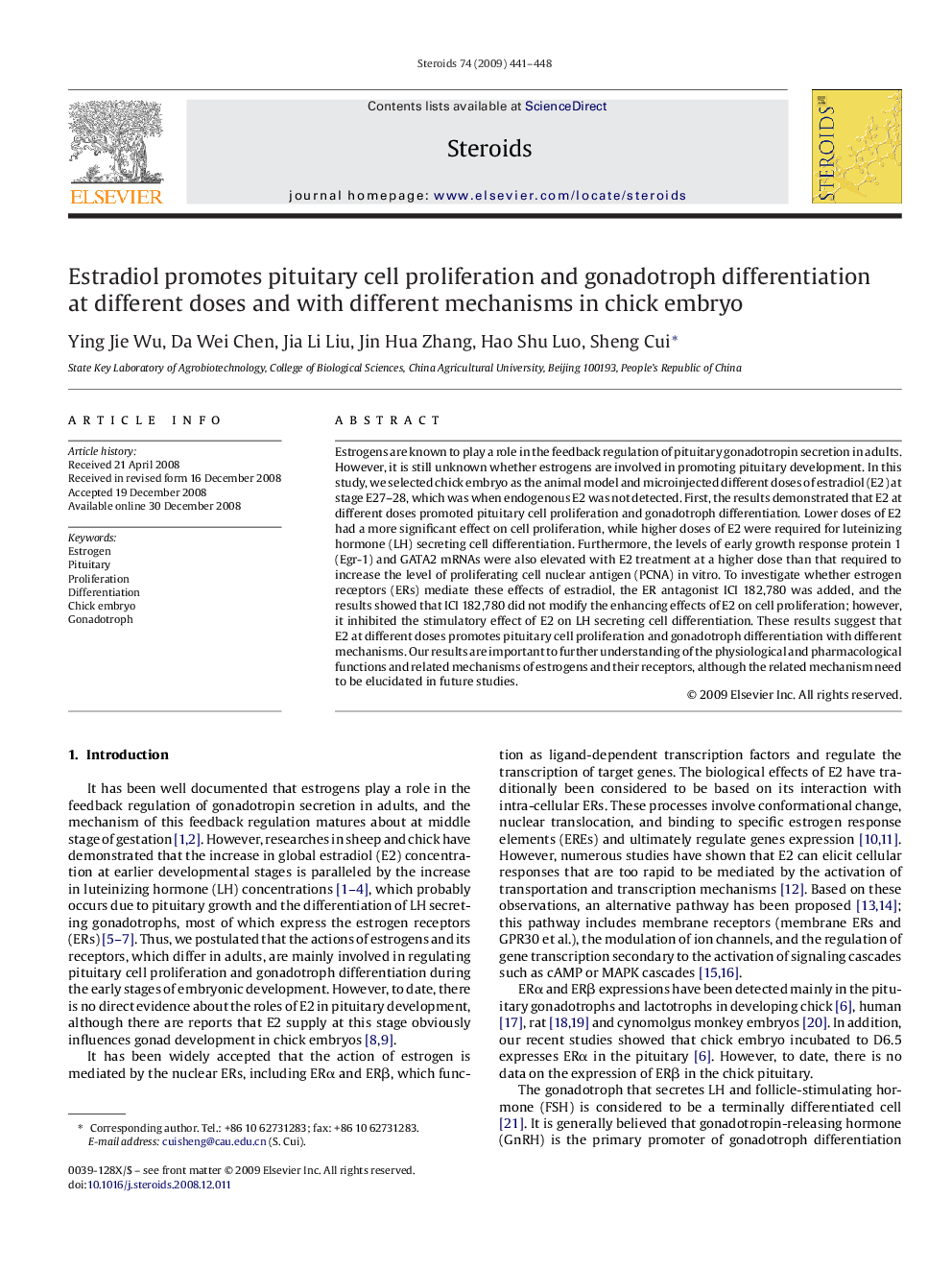| Article ID | Journal | Published Year | Pages | File Type |
|---|---|---|---|---|
| 2028936 | Steroids | 2009 | 8 Pages |
Estrogens are known to play a role in the feedback regulation of pituitary gonadotropin secretion in adults. However, it is still unknown whether estrogens are involved in promoting pituitary development. In this study, we selected chick embryo as the animal model and microinjected different doses of estradiol (E2) at stage E27–28, which was when endogenous E2 was not detected. First, the results demonstrated that E2 at different doses promoted pituitary cell proliferation and gonadotroph differentiation. Lower doses of E2 had a more significant effect on cell proliferation, while higher doses of E2 were required for luteinizing hormone (LH) secreting cell differentiation. Furthermore, the levels of early growth response protein 1 (Egr-1) and GATA2 mRNAs were also elevated with E2 treatment at a higher dose than that required to increase the level of proliferating cell nuclear antigen (PCNA) in vitro. To investigate whether estrogen receptors (ERs) mediate these effects of estradiol, the ER antagonist ICI 182,780 was added, and the results showed that ICI 182,780 did not modify the enhancing effects of E2 on cell proliferation; however, it inhibited the stimulatory effect of E2 on LH secreting cell differentiation. These results suggest that E2 at different doses promotes pituitary cell proliferation and gonadotroph differentiation with different mechanisms. Our results are important to further understanding of the physiological and pharmacological functions and related mechanisms of estrogens and their receptors, although the related mechanism need to be elucidated in future studies.
